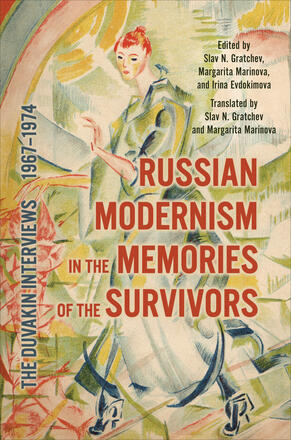
Russian Modernism in the Memories of the Survivors
The Duvakin Interviews, 1967-1974
Description
In the late 1960s and early 1970s, Soviet philologist, literary dissident, and university professor Viktor Duvakin made it his mission to interview the members of the artistic avant-garde who had survived the Russian Revolution, Stalin’s purges, and the Second World War. Based on archival materials held at the Moscow State University Library, Russian Modernism in the Memories of the Survivors catalogues six interviews conducted by Duvakin. The interviewees talk about their most intimate life experiences and give personal accounts of their interactions with famous writers and artists such as Vsevolod Meyerhold, Sergei Eisenstein, and Marina Tsvetaeva. They offer insights into the world of Russian emigrants in Prague and Paris, the uprising against the Communist government, what it was like to work at the United Nations after the Second World War, and other important aspects of life in the Soviet Union and Europe during the first half of the twentieth century.
Archival photographs, as well as hundreds of annotations to the text, are included to help readers understand the historical and cultural context of the interviews. The unique and previously unpublished materials in Russian Modernism in the Memories of the Survivors will be of great interest to anyone who wants to learn more about this fascinating period in Soviet history.